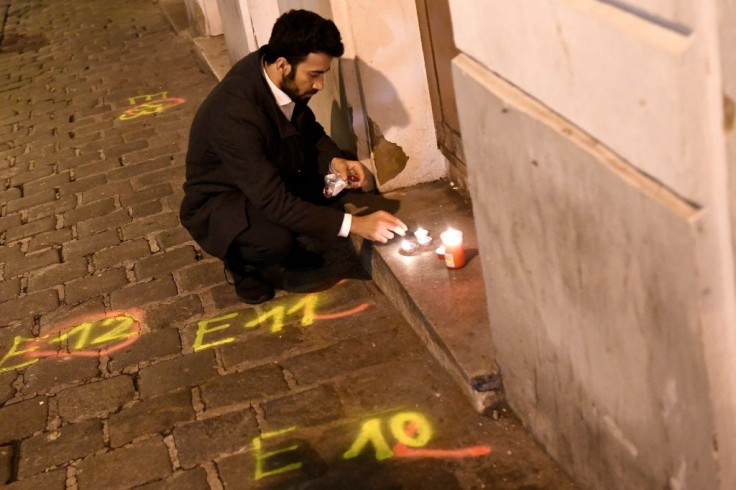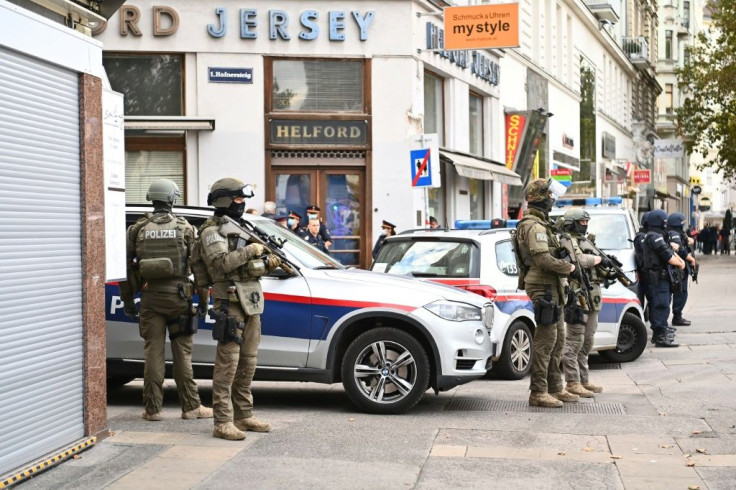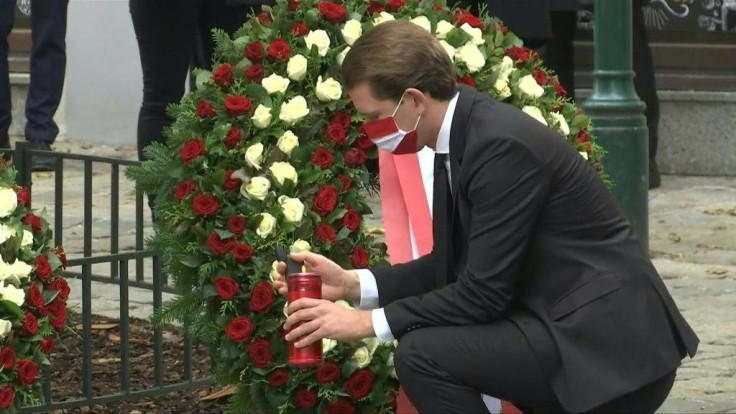In Vienna, Residents' Cherished Sense Of Security Takes A Beating
Still shell-shocked, a handful of Viennese residents ventured warily to the centre on Tuesday where four civilians were killed by a gunman, trying to make sense of Austria's first major jihadist attack.
A few metres from the scene in the historical centre of the Austrian capital, which was still cordoned off by police, Shila crouched on the doorstep of her bookstore, staring at a square speckled with circles drawn with bright chalk: one per shell casing.
The first shots erupted early Monday evening, just a few hours before a partial lockdown was to come into force in Austria to curb the spread of coronavirus.
Thousands had flocked into the bustling area to enjoy a final meal or drink with their friends.

Shila's brother was manning the bookstore when the attack happened.
"We are in Austria, he didn't understand that's what it could be. It's only when the police arrived and asked him to turn off all the lights and to stay inside that he realised," said the young woman who declined to give her last name.
"Today I opened, even without any customer -- there is no way we will just roll over and let them win," she added defiantly.
In the space of just minutes on Monday evening, as volleys of bullets were fired, the Viennese lost something they held particularly dear -- a deep sense of security that had long given them comfort when other European capitals were hit by terrorist attacks.

According to Mercer's annual Quality of Living survey, the Austrian capital has had the world's highest quality of living for a decade.
"It's not Berlin and it's not Paris, we may be a very big city, but nothing really serious ever happens here," Sharut Guenduz, a receptionist at a hotel located near the security perimeter, told AFP.

The streets were almost deserted on Tuesday, most school children remained at home with their parents and shops were closed. Only the tremors of the tramway reverberated through the cobbles.
Throughout the night, Ricardo, 30, kept comforting his children while he stayed "glued to the news". He dozed for no more than two hours before gingerly taking up his post as a guard in the parking lot in the centre of the city.
"In the end though, the surveillance cameras in the parking lot and all the police officers, that reassures me," he said.
Red and white police tape and dozens of uniformed, heavily armed officers still secured the perimeter.
The Viennese have been urged to stay at home, respect confinement and allow police forces to hunt for clues on other suspects who may have been involved in the attack.
A gunman who supported the Islamic State group was shot dead by police, but security forces are still seeking to determine if he acted alone and hunting for possible accomplices.
But despite the security threat, some onlookers came and took photos of the crime scene with their cell phones.
"I need to get some fresh air, I can't take it anymore, I'm going to go crazy," said Friedrich Voesenueber, a student who decided to ditch his television screen and go see what his neighbourhood looked like after the tragedy.
At noon, Chancellor Sebastian Kurz and President Alexander Van der Bellen placed three flower wreaths on the square.
They were adorned with red and white ribbons -- the colours of the national flag.
Today, that flag flew at half-mast.
© Copyright AFP {{Year}}. All rights reserved.




















